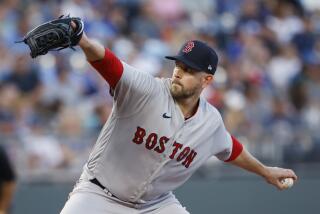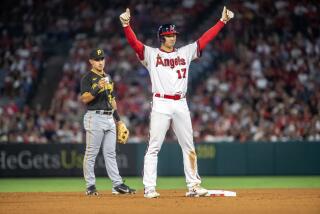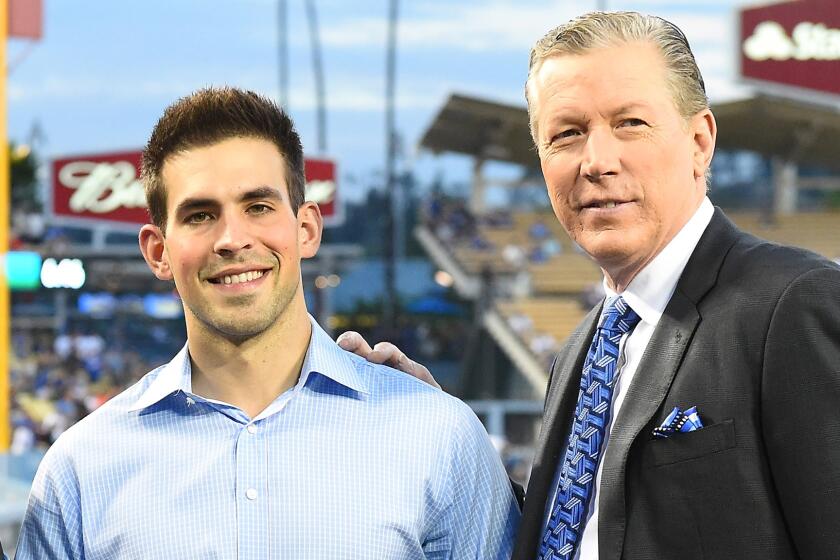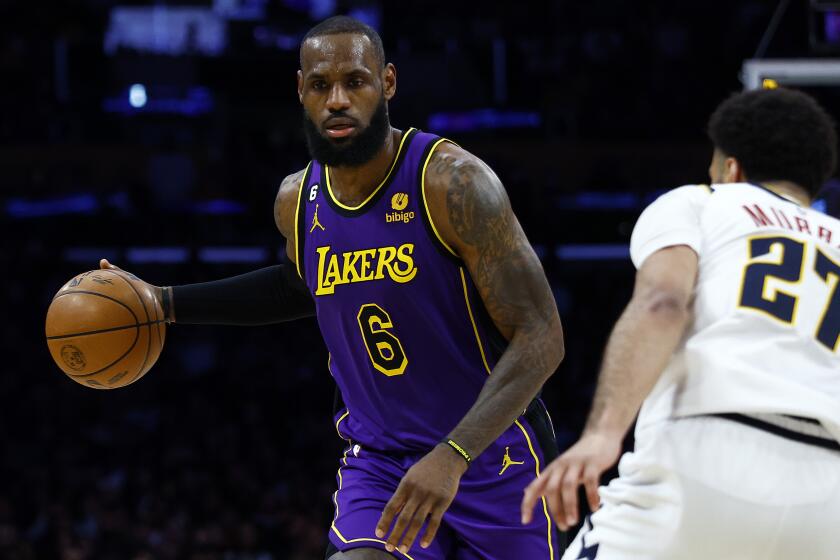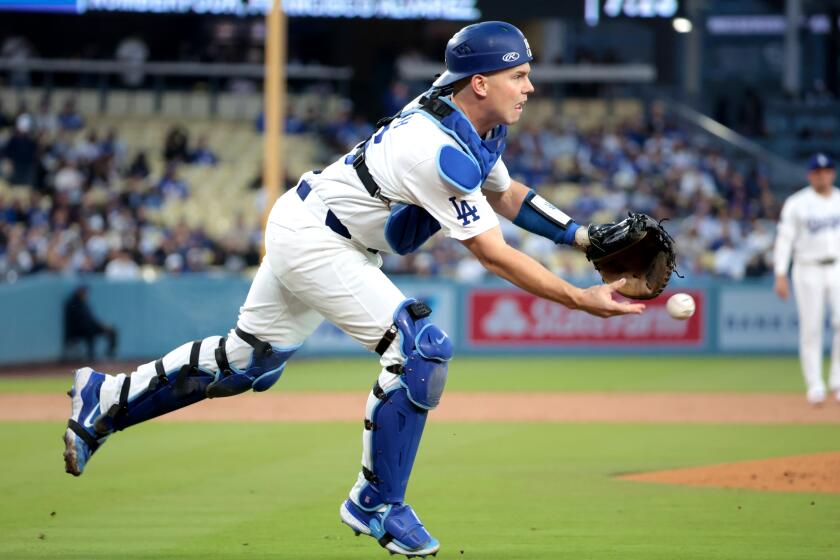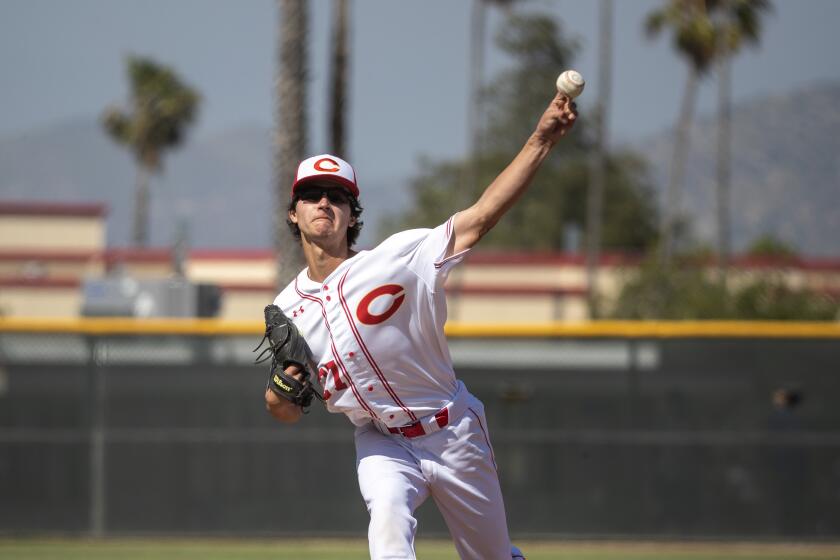Column: Dodgers pitching coach Rick Honeycutt has lived what Yu Darvish is going through

With anticipation building around Los Angeles for a possible World Series run, the Dodgers struck a deal with the Texas Rangers to acquire a frontline starting pitcher.
Sound familiar?
Only this isn’t about Yu Darvish. This story is from 1983 and the pitcher acquired by the Dodgers was a left-hander named Rick Honeycutt.
In the hallway linking the visiting clubhouse to the field at SunTrust Park, Honeycutt cracked a smile Thursday when the details of his trade were recited to him.
The similarities didn’t escape the Dodgers pitching coach. Thirty-four years after a trade thrust him into the middle of a pennant race, Honeycutt will be guiding a pitcher through a nearly identical set of circumstances.
“Kind of the same,” Honeycutt said.
If anyone understands what Darvish is experiencing as he prepares for his maiden start with the Dodgers on Friday, it’s his new pitching coach.
Honeycutt is intimately familiar with the potential obstacles Darvish could encounter. He knows the pressure the Japanese right-hander will feel. Now, if only he can help Darvish avoid sharing his fate.
“I was terrible,” Honeycutt said.
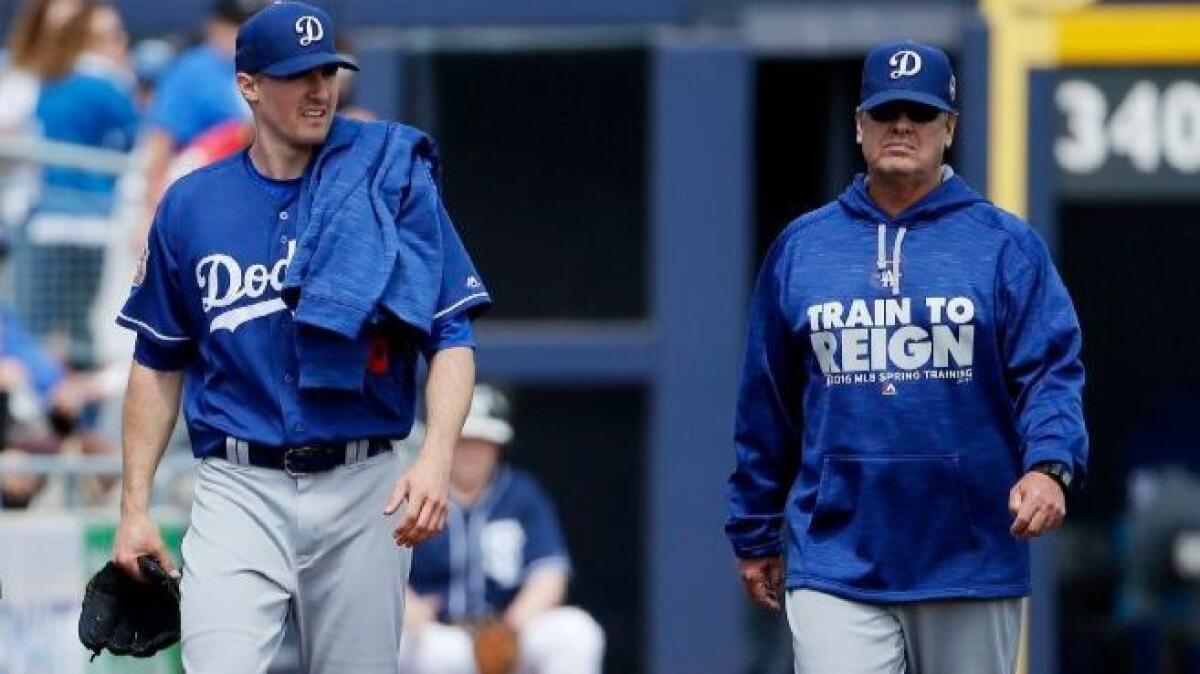
Honeycutt was an All-Star for the second time in 1983. At the time of his trade to the Dodgers, he was 14-8 with a 2.42 earned-run average, which was the best in the American League.
Like Darvish, he was set to become a free agent at the end of the season.
There were rumors he could be sent to the Atlanta Braves, who were leading the National League West. Instead, he was traded to the second-place Dodgers, who trailed the Braves by 3½ games.
In exchange for Honeycutt, the Dodgers sent the Rangers future World Series MVP Dave Stewart, $200,000 and a player to be named later, who turned out to be left-hander Ricky Wright. As part of the deal, Honeycutt agreed to a five-year contract extension.
Initially, Honeycutt continued to perform as if nothing had changed. In his first game with the Dodgers, he pitched seven scoreless innings in a 6-0 victory over the Philadelphia Phillies, who were leading the NL East.
More than how he pitched, what Honeycutt recalled from that game was what he did offensively.
“I got a base hit my first at-bat,” he said.
His next start was also against the Phillies and the results were similar, as he allowed one run in a complete-game victory.
The trajectory of his season radically changed in his third start.
“At that time of the year, in that old Olympic Stadium, it was a really damp, cool evening,” Honeycutt said. “I threw in that game and something didn’t feel right in my shoulder.”
Honeycutt alerted the training staff, which failed to diagnose what was wrong. The game was the first of a five-start stretch in which he posted a 9.14 ERA.
“I thought I was going crazy because I’d never had this feeling,” Honeycutt said. “One day I’d get an ache in the front and another day I’d get it on the side. I thought, ‘These people are going to think I’m a hypochondriac or something.’”
He finished the season in the bullpen. He continued to pitch with discomfort through the following season, when the late Dr. Frank Jobe diagnosed him with an AC joint injury.
However, the Dodgers overcame the Braves to win the NL West. Honeycutt laughed when told the two games he won made the difference. That was the margin by which the Dodgers won the division.
“I’d never been on a winning team,” he said. “All the teams I’d been on in Seattle and Texas, not one made the playoffs.”
The Dodgers were eliminated by the Phillies in the NL Championship Series. Honeycutt made two relief appearances in the series.
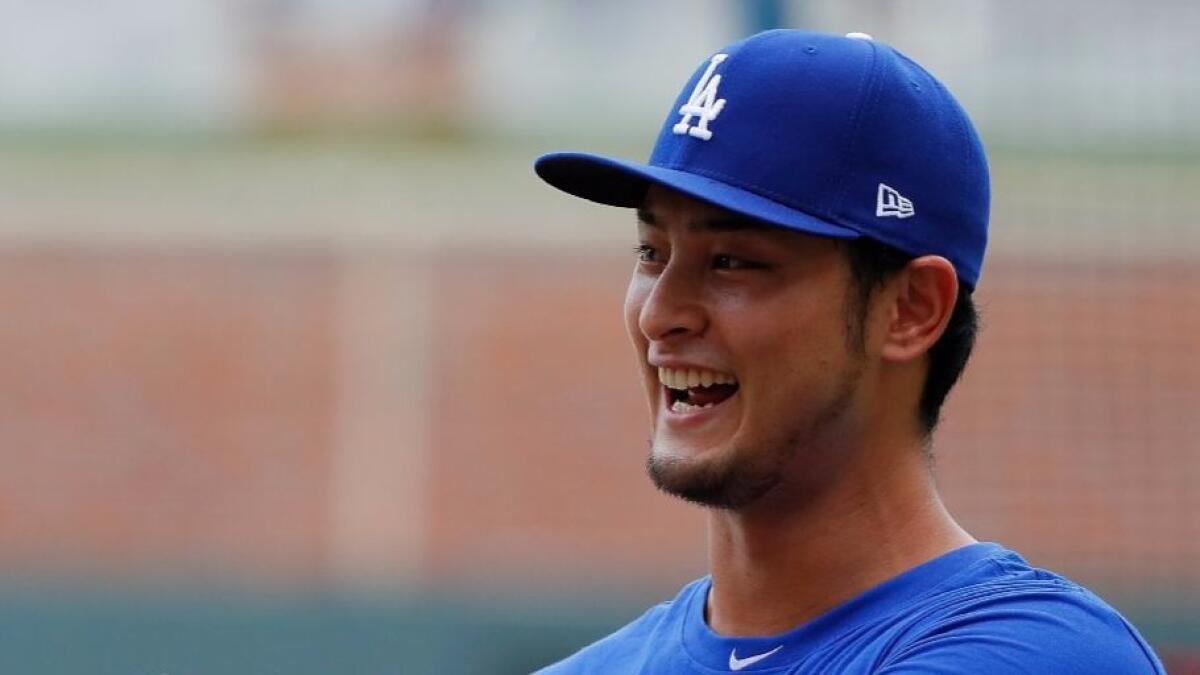
Drawing from his own experience, Honeycutt speculated that Darvish’s main source of anxiety is developing relationships with his catchers.
“You’ll be throwing to somebody you’ve never thrown to before,” he said. “My main responsibility is to make sure he and the catchers are on the same page.”
Honeycutt is mindful of other considerations he has to make, such as learning what kind of information Darvish likes to receive before starts and his between-games routine.
“I don’t see him having to change,” he said. “We’re the ones who have to adapt to him.”
Darvish had never been traded, but Honeycutt believes he will have an easier time with the move than he did.
“I mean, I think the guys that come from other countries, they have to deal with a lot more than this,” he said.
Honeycutt is also a believer in Darvish’s ability, which only increased after a 23-pitch bullpen session Wednesday.
“He’s much bigger than I anticipated,” Honeycutt said. “I knew the height, but to see the shape and the size of his lower half, he’s put together extremely well. He has such an explosive arm with a nice, fluid motion. When he spins his breaking pitches, it’s top-notch spin.”
The switch from the AL to the NL should help Darvish, and so should the move out of the Rangers’ hitter-friendly home ballpark.
Darvish was roughed up in his last start with the Rangers, allowing 10 runs in 3 2/3 innings to the Marlins. Scouts noticed Darvish tipping his pitches in that game, according to Yahoo Sports. Darvish reviewed video of the game and believed the report to be true. He told reporters in Texas the problem could be corrected.
“We’ve looked into that,” Honeycutt said. “If it is, it’s so subtle.”
Honeycutt said he was thinking of reaching out to Tim Wallach or another acquaintance on the Miami coaching staff to ask for details.
“They don’t face them again,” Honeycutt said.
However much Darvish’s situation mirrored his own, Honeycutt said his personal history didn’t come to mind when he first heard of the acquisition.
“That was 40 years ago,” he said with a laugh.
History has repeated. Only this time, Honeycutt is hopeful the story will have a different ending.
Follow Dylan Hernandez on Twitter @dylanohernandez
More to Read
Get our high school sports newsletter
Prep Rally is devoted to the SoCal high school sports experience, bringing you scores, stories and a behind-the-scenes look at what makes prep sports so popular.
You may occasionally receive promotional content from the Los Angeles Times.
